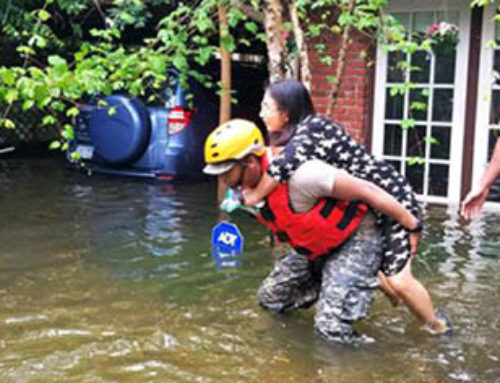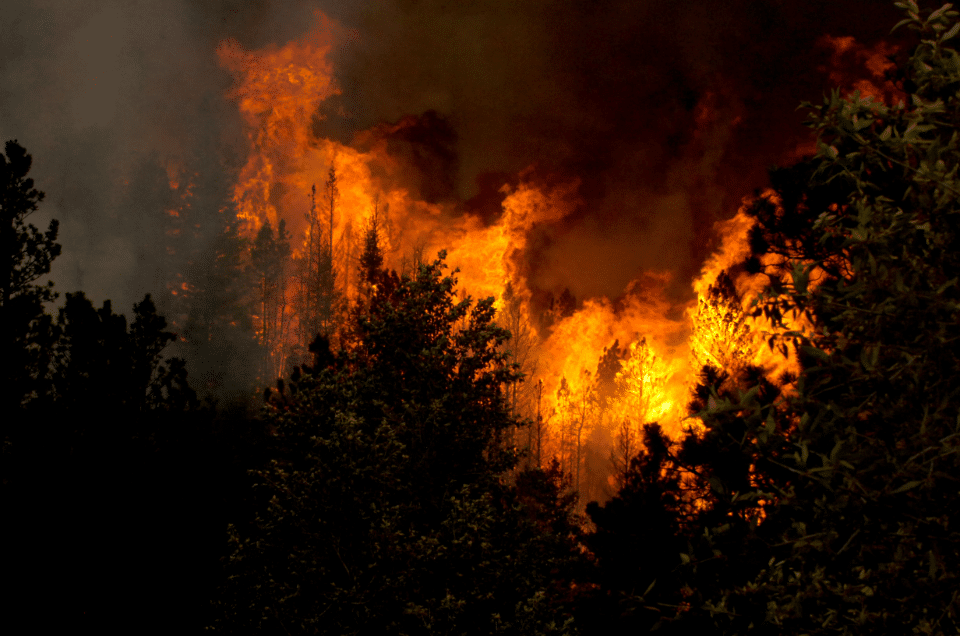In August 2022, Congress passed the Inflation Reduction Act of 2022. Pared back from the earlier Build Back Better, the bill authorized approximately $135 billion in spending on non-tax-related programs.
The environment, energy, climate, and transportation programs in the bill that carry a price tag of more than $2 billion are detailed below (with a handful of less costly provisions as well). Two caveats include: (1) the following list includes non-tax programs, and (2) we’ve catalogued agriculture, rural development, and forestry programs here. Additionally, if you would like to read our analysis of revenue raisers in the bill, or bioenergy, carbon capture, nuclear, and/or oil and gas provisions, including tax breaks, please visit our FY22 budget reconciliation resource page.
Reducing greenhouse gas (GHG) emissions and addressing climate change is a priority of the Inflation Reduction Act (IRA). The word “climate” is mentioned 33 times, and the word “greenhouse” is mentioned 147 times (not the greenhouse where vegetables are grown but rather a reference to GHG emissions). Whether programs will actually address the pressing – and costly – issue of climate change remains to be seen. Program implementation at respective agencies will play a big part, not to mention whether future funding sticks or is reallocated elsewhere. Unintended consequences, long-term liabilities, and risky taxpayer investments related to similar programs in the past should put policymakers on alert. Proper oversight, transparency, and prioritized spending, however, can deliver a positive return for taxpayers – and the climate.
Forestry
Section 23001. National Forest System Restoration and Fuels Reduction Projects
-
- $1.8 billion for hazardous fuels reduction projects within the wildland-urban interface. The term ‘‘hazardous fuels reduction project’’ means an activity, including the use of prescribed fire, to protect structures and communities from wildfire.
- $200 million for vegetation management projects, which involve the removal of vegetation, the use of prescribed fire, the restoration of aquatic habitat, or the decommissioning of a road.
- $50 million for the protection of old-growth forests on National Forest System land.
Section 23002. Competitive Grants for Non-Federal Forest Landowners
-
- $150 million for a cost sharing program with underserved forest landowners to carry out climate mitigation or forest resilience practices through existing competitive grant programs.
- $150 million to support the participation of underserved forest landowners in emerging private markets landowners to carry out climate mitigation or forest resilience practices through existing competitive grant programs.
- $100 million to support the participation of forest landowners who own less than 2,500 acres of forest land in emerging private markets to carry out climate mitigation or forest resilience practices through existing competitive grant programs.
- $50 million for payments to owners of private forest land for carbon sequestration and storage forestry practices
- $100 million for the wood innovation grant program.
Commerce, Science, and Transportation
Section 40001. Investing in Coastal Communities and Climate Resilience
-
- $2.6 billion for the National Oceanic and Atmospheric Administration “for the conservation, restoration, and protection of coastal and marine habitats and resources, including fisheries, to enable coastal communities to prepare for extreme storms and other changing climate conditions, and for projects that support natural resources that sustain coastal and marine resource dependent communities.”
Section 40004. Oceanic and Atmospheric Research and Forecasting for Weather and Climate
-
- $150 million for the National Oceanic and Atmospheric Administration for research and forecasting, and sharing information with the public about weather, coasts, oceans, and climate, with a priority on improving warning for high impact weather events that endanger life and property.
Section 40005. Computing Capacity and Research for Weather, Oceans, and Climate
-
- $190 million to improve the computing capacity of the National Oceanic and Atmospheric Administration for weather prediction and ocean science research.
Energy and Natural Resources
Section 50121. Home Energy Performance-Based, Whole-House Rebates
-
- $4.3 billion for “grants to State energy offices to develop and implement a HOMES rebate program.”
Section 50122. High-Efficiency Electric Home Rebate Program
-
- $4.5 billion for high-efficiency electric home rebate programs.
Section 50141. Loan Programs Office (DOE)
-
- Up to $40 billion in loan guarantee commitments (total principal amount) for eligible projects under section 1703 of the Energy Policy Act of 2005.
- $3.6 billion for the costs of guarantees made under section 1703 of the Energy Policy Act of 2005, including administrative expenses.
Section 50142. Advanced Technology Vehicle Manufacturing (DOE)
-
- $3 billion for direct loans for “reequipping, expanding, or establishing a manufacturing facility in the United States to produce, or for engineering integration performed in the United States of, advanced technology vehicles.”
Section 50143. Domestic Manufacturing Conversion Grants (DOE)
-
- $2 billion for “grants for domestic production of efficient hybrid, plug-in electric hybrid, plug-in electric drive, and hydrogen fuel cell electric vehicles…”
Section 50144. Energy Infrastructure Reinvestment Financing (DOE)
-
- $5 billion for projects that retool, repower, repurpose, or replace energy infrastructure that ceased operations or enable operating energy infrastructure to reduce or sequester air pollutants or greenhouse gas emissions.
Section 50151. Transmission Facility Financing
-
- $2 billion for direct loans for “the construction or modification of electric transmission facilities designated… to be necessary in the national interest.”
Section 50161. Advanced Industrial Facilities Deployment Program
-
- $5.812 billion for the Office of Clean Energy Demonstrations for financial assistance “for the purchase and installation, or implementation, of advanced industrial technology at an eligible facility,” among other purposes.
Section 50172. National Laboratory Infrastructure (DOE)
-
- $2 billion for everything from science laboratory infrastructure projects to isotope research, in addition to funding for DOE offices including Fossil Energy and Carbon Management, Energy Efficiency and Renewable Energy, and Nuclear Energy.
Environment and Public Works
Section 60102. Grants to Reduce Air Pollution at Ports (EPA)
-
- $3 billion for zero-emission port equipment or technology, related planning and permitting, qualified climate action plans, etc.
Section 60103. Greenhouse Gas Reduction Fund (EPA)
-
- $7 billion for “grants, loans, or other forms of financial assistance, as well as technical assistance, to enable low-income and disadvantaged communities to deploy or benefit from zero-emission technologies…”
- $11.97 billion in financial assistance and technical assistance.
- $8 billion for financial assistance and technical assistance in low-income and disadvantaged communities.
Section 60114. Climate Pollution Reduction Grants (EPA)
-
- $4.75 billion for GHG Air Pollution Implementation Grants, with applications requiring info on “the quantifiability, specificity, additionality, permanence, and verifiability of such projected greenhouse gas air pollution reduction.”
- $250 million for GHG Air Pollution Planning Grants.
Section 60201. Environmental and Climate Justice Block Grants (EPA)
-
- $2.8 billion for grants for (1) “community-led air and other pollution monitoring, prevention, and remediation, and investments in low- and zero-emission and resilient technologies,” (2) “mitigating climate and health risks from urban heat islands, extreme heat, wood heater emissions, and wildfire events,” (3) climate resiliency and adaptation, (4) “reducing indoor toxics and indoor air pollution, (5) “facilitating engagement of disadvantaged communities in State and Federal public processes.”
- $200 million for technical assistance.
Section 60302. Funding for the United States Fish and Wildlife Service to Address Weather Events
-
- $121.25 million to rebuild and restore areas in National Wildlife Refuge System and State wildlife management areas by “(1) addressing the threat of invasive species; (2) increasing the resiliency and capacity of habitats and infrastructure to withstand weather events; and (3) reducing the amount of damage caused by weather events.”
Section 60501. Neighborhood Access and Equity Grant Program
-
- Over $3 billion for the “Federal Highway Administration for competitive grants… to improve walkability, safety, and affordable transportation access through construction of projects… [and] for planning and capacity building activities in disadvantaged or underserved communities,” among other priorities.
Section 60503. Use of Low-Carbon Materials
-
- $2.15 billion “to acquire and install low-embodied carbon materials and products for use in the construction or alteration of buildings under the jurisdiction, custody, and control of the General Services Administration.”
Section 60506. Low-Carbon Transportation Materials Grants
-
- $2 billion for the Federal Highway Administration “for the use of low-embodied carbon construction materials and products in projects,” and for operations and administration.
Homeland Security and Government Affairs
Section 70006. FEMA Building Materials Program
-
- Financial assistance of an unspecified amount for “costs associated with low-carbon materials and incentives that encourage low-carbon and net zero energy projects,” including any potential increase in the federal cost share of the projects as part of the pre-disaster mitigation program, Hazard Mitigation Grant program, and post-disaster repair of state and local facilities.











Get Social